Caliper calibration services play a crucial role in ensuring the accuracy and precision of measurements in various industries. Professional calibration services offer numerous benefits that can significantly improve the reliability and performance of calipers. In this article, we will explore the top 5 benefits of professional caliper calibration services and on site calibration services how they can positively impact the quality and efficiency of measurement processes. Whether it's for manufacturing, construction, or research purposes, investing in professional calibration services for your calipers can make a world of difference.
1. Accuracy: Professional caliper calibration services ensure that your equipment is accurately measuring distances and dimensions, preventing costly errors and rework. 2. Compliance: Regular calibration by a professional ensures that your calipers meet industry standards and comply with regulations, providing peace of mind and reducing the risk of penalties or product recalls. 3. Extended lifespan: Regular calibration can help identify and address any issues with your calipers, preventing potential damage or wear and tear that can shorten their lifespan. 4. Quality assurance: With professional calibration, you can be confident that your calipers are consistently producing reliable and accurate measurements, contributing to the overall quality and precision of your work. 5. Cost savings: By preventing inaccuracies and ensuring the longevity of your calipers, professional calibration services can ultimately save you money by minimizing rework, errors, and the need for premature calibration management services equipment replacement.
The Importance of Accurate Caliper Calibration for Precision Measurements
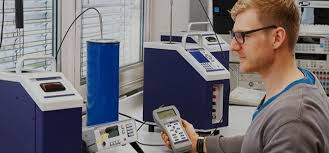
Accurate caliper calibration is crucial for obtaining precise measurements in various industries, including manufacturing, engineering, and research. Calipers are precision measuring instruments used to measure distances and dimensions with high accuracy. An improperly calibrated caliper can result in inaccurate measurements, leading to costly errors in production or unreliable data in research and development. Caliper calibration ensures that the instrument is functioning within specified tolerances and providing accurate measurements. Regular calibration also helps to identify any wear and tear on the caliper and allows for timely maintenance or replacement, thereby preserving the accuracy of measurements over time. In industries where precision is critical, such as aerospace, automotive, and medical device manufacturing, accurate caliper calibration is essential for meeting quality standards and ensuring product performance and safety. Additionally, research and development activities in fields like materials science, metrology, and microelectronics rely on precise measurements for advancing technological innovations. By investing in accurate caliper calibration, organizations can maintain the integrity of their measurements, improve product quality, and minimize the risk of costly errors. It also demonstrates a commitment to quality and precision, which can enhance a company's reputation test equipment calibration services and competitiveness in the marketplace.
Maximizing Efficiency with Professional Caliper Calibration Services
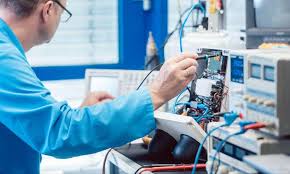
Maximizing efficiency with professional caliper calibration services involves ensuring that all calipers are accurately and precisely calibrated to provide the most reliable measurements possible. With accurate calibrations, businesses can minimize errors and reduce the risk of product defects or inaccuracies. This ultimately leads to improved productivity, cost savings, and enhanced overall quality control. Professional calibration services offer the expertise and equipment necessary to ensure that calipers are functioning at their best, allowing businesses to operate with optimal efficiency and precision.
Ensuring Compliance: The Role of Caliper Calibration in Industrial Quality Control
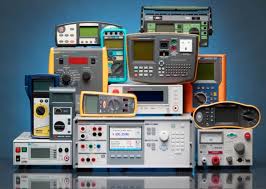
Ensuring compliance in industrial quality control is crucial for maintaining the reliability and accuracy of measurement tools. Caliper calibration plays a significant role in this process, as it ensures that calipers are accurately measuring dimensions within specified tolerances. Properly calibrated calipers help to minimize errors and ensure that products meet required quality standards. Regular calibration of calipers is essential for maintaining compliance with industry regulations and standards, as well as for achieving consistent and reliable measurements in industrial settings.
The Benefits of Routine Caliper Calibration for Manufacturing Operations
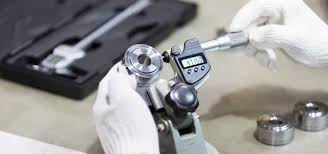
Caliper calibration is a critical aspect of manufacturing operations, as it ensures the accuracy and precision of measurements during the production process. Routine calibration of calipers helps to maintain consistency in product quality, reduces the risk of errors, and improves overall efficiency in manufacturing operations. Additionally, calibrated calipers contribute to meeting regulatory requirements and industry standards, ultimately leading to customer satisfaction and confidence. Regular calibration also extends the lifespan of calipers and minimizes the need for costly repairs or replacements. Overall, the benefits of routine caliper calibration for manufacturing operations include enhanced quality control, increased productivity, and reduced operational costs.
Choosing the Right Provider for Caliper Calibration Services
onsite calibration services
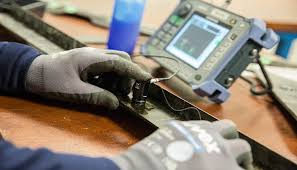
When choosing a provider for caliper calibration services, it is important to consider their experience and expertise in the industry. Look for a company that has a track record of providing high-quality calibration services for a range of caliper types and brands. It is also important to ensure that the provider has the necessary accreditation and certifications to perform caliper calibrations. This can include ISO 17025 accreditation or specific manufacturer certifications. Consider the turnaround time for caliper calibration services, as well as the provider's ability to accommodate urgent calibration needs. A reliable provider should be able to offer a reasonable turnaround time without compromising on the accuracy of the calibrations. Cost is another important factor to consider when choosing a calibration service provider. While it's important to find a competitive price, it's equally important to consider the quality of service provided. Lastly, look for a provider that offers excellent customer service and support. This can include clear communication throughout the calibration process, as well as assistance with any post-calibration concerns or questions. By considering these factors, you can choose the right provider for caliper calibration services and ensure that your equipment is properly calibrated for accurate measurements.
The Science Behind Caliper Calibration and its Impact on Production
pressure gauge calibration services
Caliper calibration is crucial in the production process as it ensures accuracy and precision in measurements. When calipers are not properly calibrated, it can result in faulty measurements, leading to defective products and costly rework. The science behind caliper calibration involves understanding the instrument's design and its intended purpose. Factors such as temperature, humidity, and wear and tear can affect the accuracy of calipers, making regular calibration essential. Inaccurate measurements can result in production errors, leading to costly recalls and potential damage to a company's reputation. Additionally, calibrated calipers help ensure that products meet industry standards and regulations. Implementing a regular calibration schedule for calipers can help improve overall production efficiency and reduce the likelihood of costly errors. It also demonstrates a commitment to quality and accuracy in manufacturing processes. In summary, the science behind caliper calibration directly impacts production by ensuring accurate measurements, reducing errors, and ultimately improving product quality and reliability.
Understanding the Process: Caliper Calibration Services Demystified
Understanding the Process: Caliper Calibration Services Demystified is a comprehensive guide that aims to demystify the process of caliper calibration. The guide covers various aspects of caliper calibration, including the importance of this process, the calibration methods used, common challenges and errors, and the benefits of professional calibration services. It provides valuable insights for professionals who rely on accurate caliper measurements in their work, helping them understand the intricacies of the calibration process and make informed decisions regarding their calibration needs. The guide also highlights the role of accredited calibration service providers in ensuring the accuracy and reliability of caliper measurements. Overall, it is a valuable resource for anyone seeking to deepen their understanding of caliper calibration.
Improving Product Quality through Proper Caliper Calibration Techniques
Proper caliper calibration techniques are essential for improving product quality in manufacturing. Calipers are precision measurement tools used to ensure the accuracy and consistency of dimensional specifications in the production process. When calipers are not properly calibrated, it can result in inaccurate measurements, leading to defective products and customer dissatisfaction. Calibration involves comparing the measurements of the caliper with a known standard to determine any deviations and making necessary adjustments to ensure accuracy. This process helps to maintain the reliability of the caliper and ensure that it provides consistent and precise measurements. By implementing proper caliper calibration techniques, manufacturers can improve the quality of their products by ensuring that components and materials are measured accurately and consistently. This can result in fewer defects, lower rejection rates, and ultimately, higher customer satisfaction. Furthermore, proper caliper calibration can also contribute to cost savings by reducing the need for rework and scrap caused by inaccurate measurements. It can also help to prevent potential product recalls and liability issues associated with defective products. Overall, proper caliper calibration techniques are crucial for improving product quality in manufacturing by ensuring accurate and consistent measurements, reducing defects, and enhancing customer satisfaction.
The Link Between Accurate Caliper Calibration and Cost Savings
Accurate caliper calibration is essential in ensuring that measurements are precise and reliable. When calipers are not calibrated correctly, it can lead to inaccurate measurements, resulting in costly errors and rework. Properly calibrated calipers enable manufacturers to produce high-quality products the first time, reducing waste and saving both time and money. Additionally, accurate calibration can prevent errors in product assembly and improve overall production efficiency, leading to long-term cost savings. Regular calibration of calipers also helps in identifying potential issues early on, preventing costly equipment failures and production downtime. Therefore, investing in accurate caliper calibration can ultimately result in significant cost savings for businesses.
Expert Tips for Maintaining Caliper Precision through Calibration Services
Precision is crucial in maintaining the functionality and accuracy of calipers. Calibration services are essential for ensuring the continued precision of calipers. Here are some expert tips for maintaining caliper precision through calibration services: 1. Regular Calibration: It is important to schedule regular calibration services for calipers to ensure that they remain accurate and reliable. This will help to identify any deviations or inaccuracies in measurements and allow for adjustments to be made as necessary. 2. Use Accredited Service Providers: When selecting a calibration service provider, it is important to choose one that is accredited and recognized for their expertise in caliper calibration. This can help to ensure that the services provided are of high quality and meet industry standards. 3. Maintain Proper Handling and Storage: Proper handling and storage of calipers can also impact their precision. It is important to store calipers in a clean, dry environment and handle them with care to avoid damage that could affect their accuracy. 4. Document Calibration Results: Keep detailed records of calibration results for each caliper, including any adjustments made during the process. This documentation can provide valuable insight into the performance of the calipers over time and help in identifying any trends or issues that may arise. 5. Monitor Performance: Keep an eye on the performance of calipers in between calibration services. If any inconsistencies or deviations in measurements are noticed, it may be necessary to expedite the calibration process to address any potential issues. By following these expert tips for maintaining caliper precision through calibration services, you can ensure that your calipers continue to provide accurate and reliable measurements for your applications.
